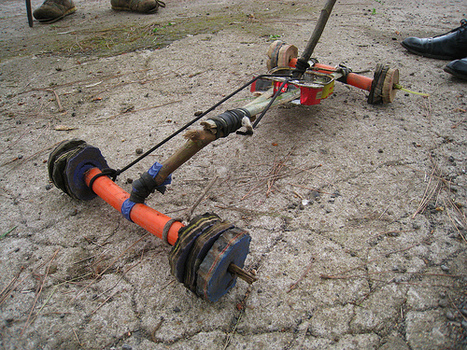"An extremist group has seized the African city of Timbuktu, systematically destroying its monuments." Recently, various groups have claimed the historic region in Mali, one group even declaring it a breakaway state, but currently the extremeist group Ansar Dine is in control and in the process of destroying some of the UNESCO World Heritage Sites there. They deem the shrines, mosques and early universities as sacrilegious and tourism to be "debauchery".
Via Allison Anthony



 Your new post is loading...
Your new post is loading...

























